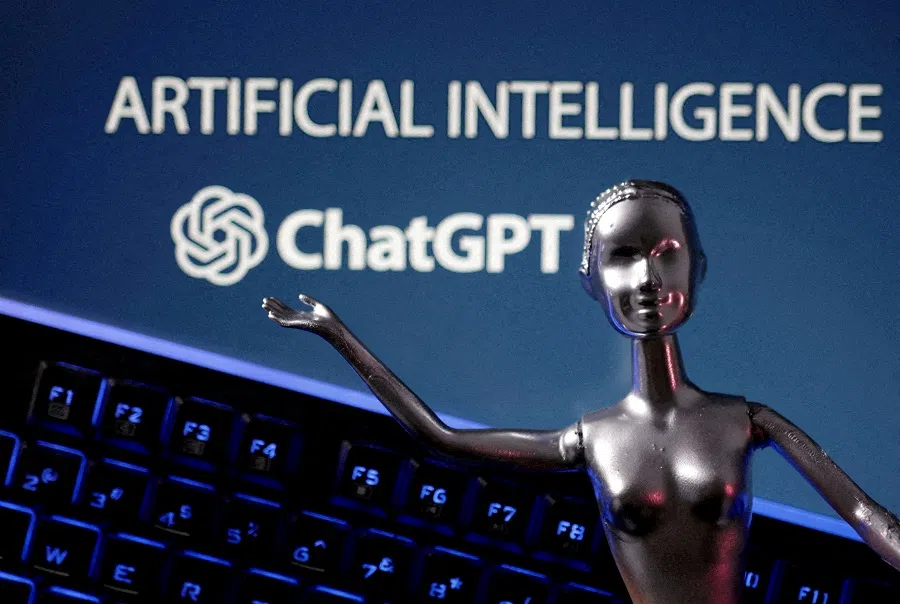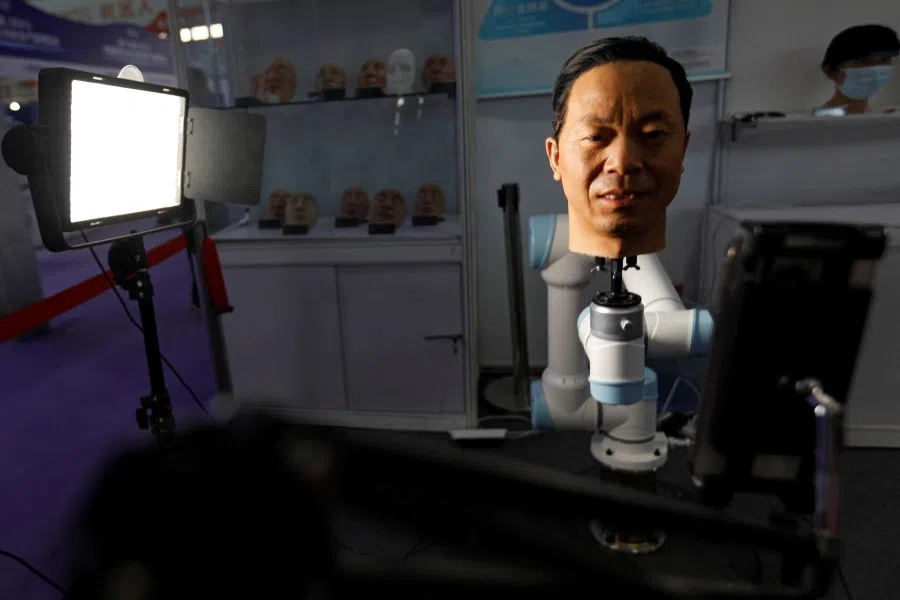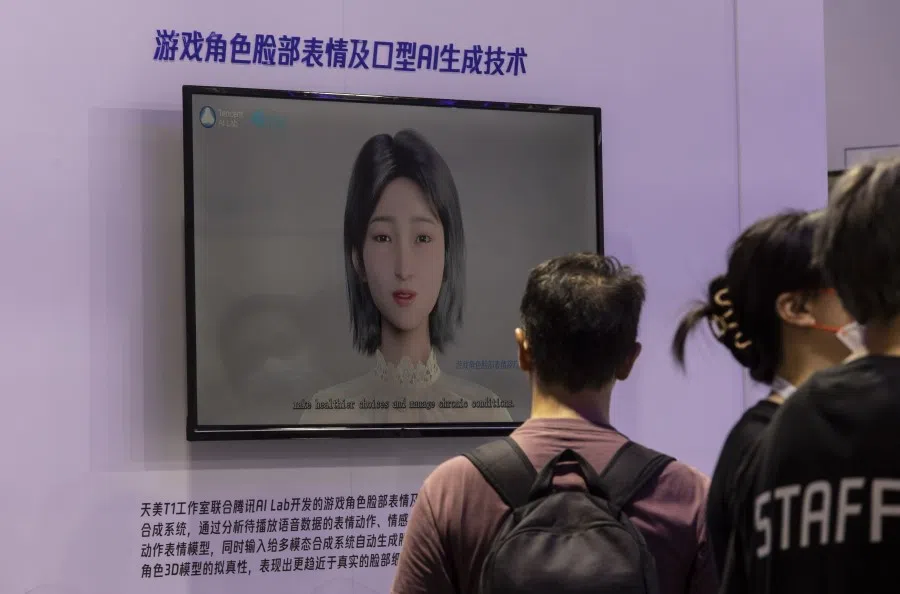Commercial opportunities of the new AI wave still some way away
Technology expert Yin Ruizhi believes that the current artificial intelligence fever is still at its nascent stage whereby tech companies need to focus on technical development before it becomes profitable. However, compared with the previous breakthroughs in the mobile internet era, the tech industry is exploring emerging business paradigms with no rush to capitalise on generative AI for now.

A widely discussed topic among non-technology investment circles today is whether the current artificial intelligence (AI) fever is just another fad like the metaverse, Web 3.0 or even AlphaGo.
Plethora of generative AI application scenarios
I believe that the hype around the current generative AI fever spearheaded by ChatGPT will not die down like the previous rounds of tech investment hotspots. This is because unlike the latter, generative AI has been associated with a plethora of application scenarios since its creation, all of which can be directly implemented, such as:
- Multi-turn dialogues: AI-generated content (AIGC) is able to learn and master the best practices in livestreaming scripts and various chatbots under high transaction value and private communication scenarios.
- Knowledge base construction: in addition to data organisation, AIGC can also generate personalised databases and new search capabilities based on effective summarisation, for enterprise AI and personal assistants.
- Smart search: AIGC can be applied to scenarios where systems with pre-existing knowledge base, such as the new Bing and Perplexity, can realise semantic search functions.
- Enterprise robotic process automation (RPA): by combining large language models (LLMs) and RPA, AIGC can play an important role in enterprise applications, such as Salesforce and Microsoft's Copilot.
- Multimodal content generation: AIGC innovations can be applied to AI writing assistants, visual advertisements creation and intelligent non-playable characters in gaming, to generate text, images, videos and even 3D digital content.
- Code generation: AIGC has great potential for code generation using softwares such as GitHub Copilot, and can enhance the productivity of programmers while offering convenient tools to non-technical workers and lowering the bar to enter programming.
These are not far-fetched fantasies that have yet to be realised but are technologies that have already been commercialised and continually iterated, with numerous startups already generating commercial revenue.
Be it investors or entrepreneurs, we believe that it is the time to simply observe and moderately participate in the generative AI fever. It is certainly not yet the time to go all in.

This is in stark contrast to the hype over the metaverse a while ago. The sensationalisation of the metaverse seems to demonstrate that no consensus has been reached even on its concept - a recognised definition for the metaverse is still non-existent, let alone its concrete applications. Most companies simply called themselves a metaverse company for the sake of it.
Facebook, which is one of the strongest advocates for the metaverse, even rebranded as Meta, but its CEO Mark Zuckerberg has not been able to launch a concrete application of the metaverse. His Horizon Workrooms, which allows users to meet and work in the metaverse, is a long way from coming to fruition. At the same time, Web 3.0's applications have so far been coin speculation and not much else.
Competition in pricing and distribution
If the current AI craze is not just another fad like the aforementioned ones that have lost steam, is it the right time now to jump on the bandwagon?
Be it investors or entrepreneurs, we believe that it is the time to simply observe and moderately participate in the generative AI fever. It is certainly not yet the time to go all in.

While history does not simply repeat itself, it does provide significant references for the present. The current applications of AI and the early applications of the iPhone are worth looking into. Early iPhone applications such as flashlights, weather tools, as well as game applications such as Fruit Ninja and Angry Birds, quickly attracted tens of millions of users.
... the competition in technology ultimately evolves into one based on cost and distribution channels.
Struggling to achieve profitability
However, in the later stages of mobile device development, we witnessed the triumph of monopolies built on the network effect, such as WeChat, TikTok, and high production capacity games such as Genshin Impact. Clearly, the early flashlight and weather apps did not build competitive barriers.
In fact, contrary to popular belief that capital tends to go all in during the early stages of a technological wave, in most cases it is difficult for technology to build barriers.
In the previous wave of AI development, four Chinese unicorns (Megvii, SenseTime, CloudWalk, and Yitu Technology) pushed computer vision algorithms to the extreme, but they have struggled to achieve profitability.
A few years ago, a facial recognition solution could be sold for millions of RMB, but now it is only worth 300,000 RMB (US$41,400). If only one company can commercialise facial recognition algorithms, it naturally has the power to set prices as it sees fit.

However, if every company can achieve a similar level of performance, the competition then shifts to pricing and distribution channels. Every technology has a maturation period, which is when the leader may still have algorithmic advantages. But these are just minute differences between recognition rates of 99% and 99.9%, which is negligible to users. So, the competition in technology ultimately evolves into one based on cost and distribution channels.
Any industry caught in intense competition will be a tough one, as excess profits come from pricing power, which in turn comes from monopolies.
Gaming industry's growth since the mobile era
The emergence of new paradigms inevitably leads to a shift in the value chain of industries. As AI reshapes the order of the online world, where will the new monopolies arise?
Currently, many gaming companies claim to be "AI+gaming" companies, and the secondary gaming industry is flourishing with the concept of AI. However, is AI really only about reducing cost and improving efficiency?
When paradigms are reshaped, the most common mistake is simply grafting new technologies onto old systems. A classic example is how Baidu called for a "mobile first" strategy on the advent of the mobile era, but merely developed a Baidu mobile app without recognising that the mobile ecosystem had completely reshaped the way information is disseminated.
Eventually, ByteDance, which mastered the information distribution paradigm of the mobile era, took over Baidu's industry position from the PC era, while Tencent and Alibaba, with the capability to monopolise transferable resources, continued to maintain their dominance in the mobile era.

The gaming industry has been part of the historical landscape right from their first entry into the mobile internet era. However, Tencent, which has a monopoly of the entire ecosystem of game development and distribution, has been reaping excess profits. It was only in the past year or so that emerging giants such as Lilith Games began to rise by relying on their strong content moats.
The real focus lies in how to explore the emerging business paradigms that come with generative AI.
Lessons from the advent of mobile internet
Looking at the current stage of development of generative AI, no one has truly grasped the commercial paradigm of the generative AI era with its network effects and monopolistic capabilities. This is supported by the fact that the market giants are currently focusing their generative AI efforts around the purely technical fields, without rushing to expand commercially.
In China, Wang Huiwen, who became an important internet industry figure after the success of food delivery service Meituan, had said that he would only hire technical personnel for his AI startup. (NB: The start-up has recently been bought over by Meituan). During our research, our data team collected and analysed a large amount of recruitment data from major companies, and found that the US and China giants are currently stuck in the purely technical domain for their recruitment.
So, from an investment and entrepreneurial perspective, there is no need to panic about missing opportunities. The real focus lies in how to explore the emerging business paradigms that come with generative AI. It is also worth reviewing valuable reflections on the business paradigms during the advent of the mobile internet.


![[Big read] When the Arctic opens, what happens to Singapore?](https://cassette.sphdigital.com.sg/image/thinkchina/da65edebca34645c711c55e83e9877109b3c53847ebb1305573974651df1d13a)


![[Video] George Yeo: America’s deep pain — and why China won’t colonise](https://cassette.sphdigital.com.sg/image/thinkchina/15083e45d96c12390bdea6af2daf19fd9fcd875aa44a0f92796f34e3dad561cc)